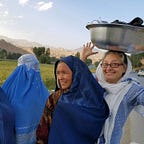No Pakistani Can Be Safe Until All Pakistanis are Safe
By C. Christine Fair | April 4, 2021
While many Pakistanis ascribe the myriad terrorist attacks in Pakistan to an Indian-Afghan saazish, deep down I suspect most know that this is not the case. In fact, these are the bitter fruits of seeds which were planted long before Partition and which have subsequently been nurtured by Pakistan’s deep state which has harnessed Islamist violence for domestic and international policy objectives while feeding the public a toxic pabulum of fictions. Until Pakistan abandons its past ideological commitments and forges a future free of Islamist rhetoric, no Pakistani will be safe.
Perhaps Pakistan’s founding problem was the Two Nation Theory itself, which essentially propounded a fear-mongering narrative that Muslims could not live in dignity in a unified India under the control of a Hindu majority. Indeed Muhammad Ali Jinnah found few subscribers to this concept initially as the 1937 elections demonstrated. In those elections, the Muslim League was routed. By the 1947 elections, Jinnah had been more successful in garnering support for the concept which had become synonymous with an independent Pakistan, yet many in what was then the North West Frontier Province did not support the Muslim League and its notion of Pakistan and many in what is now Pakistan had no vote at all, such as those living in Balochistan and other Princely States.
After Independence, Pakistan clung to the Two Nation Theory like a life raft in the middle of turbulent seas, even though there was adequate evidence to further invalidate the notion. Not only did many Muslims in India reject the Muslim League and its Pakistan, before Partition, many still rejected it after Partition. And the loss of East Pakistan, which demonstrated that being a Muslim was inadequate for ethnic Bengalis who suffered for decades under the jack boot of West Pakistan, was yet another nail in the coffin of the Two Nation Theory. Finally, Pakistanis today-whether they are Barelvi or Shia-are finding that they are not the “right kind of Muslims,” and subjected to violence. This is in addition to Hindus and Christians who have long been marginalized by the state and its governance apparatus.
The Two Nation Theory was a fundamentally othering ideology which was antithetical to democracy. If the Two Nation Theory had its utility in securing an independent Pakistan, it has had little utility in uniting the modern state. For one thing, at independence, one in four Pakistanis were not Muslims. If Muslims could not live safely in India under the purported tyranny of a Hindu majority despite political promises and later constitutional protections, how could non-Muslims feel safe in a country dominated by Muslims which embraced Islam as a political and governance ideology? They could not.
If the Two Nation Theory was Pakistan’s first sin against its future polity, the Objectives Resolution, passed by the Constituent Assembly in March 1949, was the second. The Objectives Resolution, which has served as the preamble to the 1956, 1962 and 1973 Constitutions was finally incorporated into the 1973 Constitution by the Zia-era Eighth Amendment. While some Pakistanis laud the genius of the Objectives Resolution, claiming that it melded the basic principles of an Islamic political system with the lineaments of Western Democracy, in fact it did no such thing. In a democracy, the sovereignty of the state lies in the hands of the voters. Yet the Objectives Resolution proclaimed that the sovereignty of the entire universe — not just Pakistan or Muslims — belongs to Allah alone and that authority would be delegated to the state through its people under the rules set by Allah. There is nothing democratic about this, especially not for the one in four Pakistanis who were not Muslims and who consider themselves to be Muslims but who are considered apostates by the state.
Originally published at http://www.southasia.com.pk on April 1, 2021.
